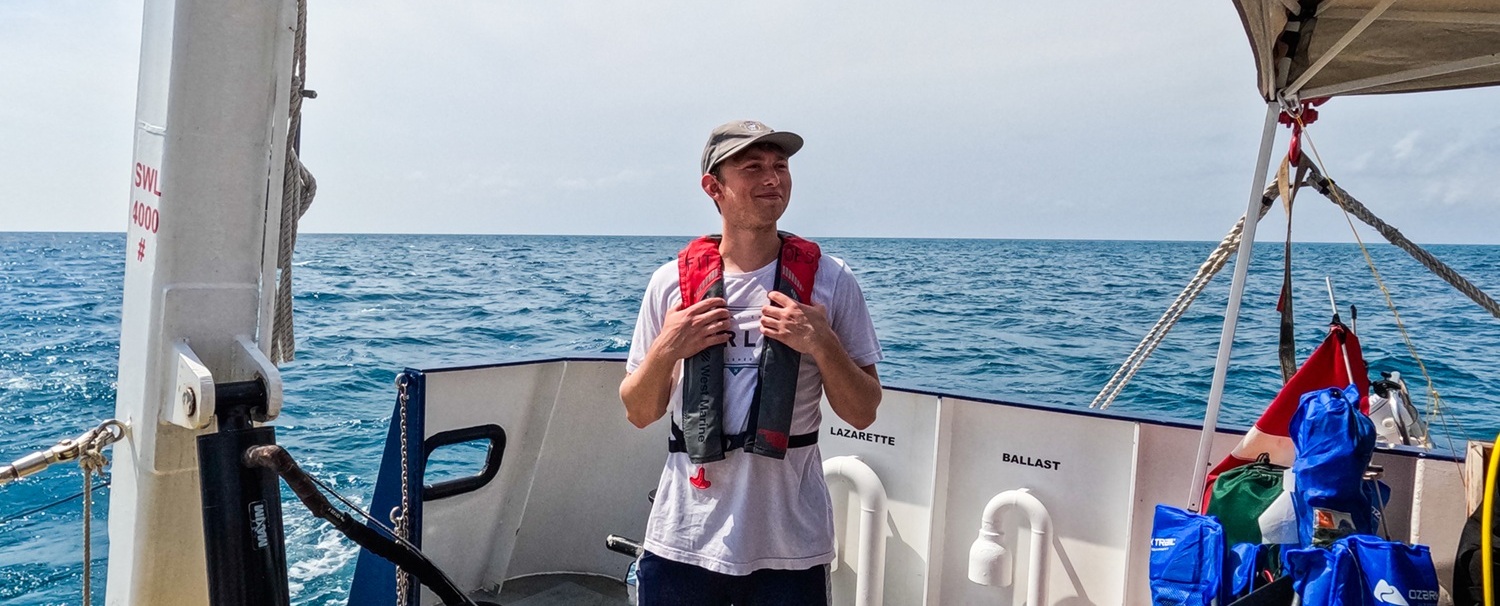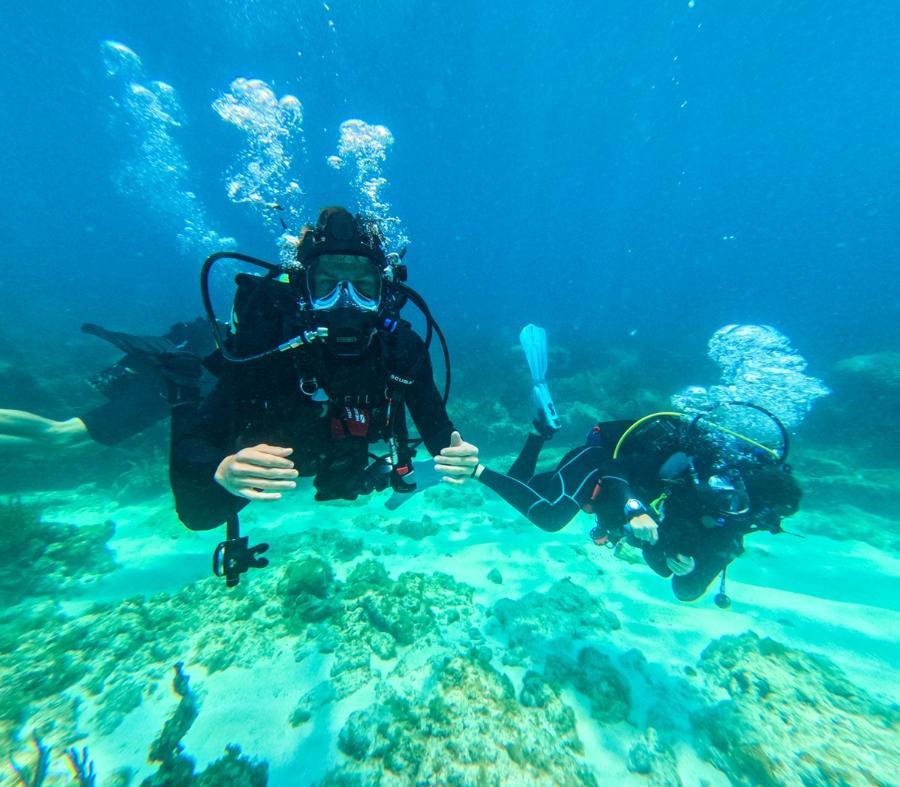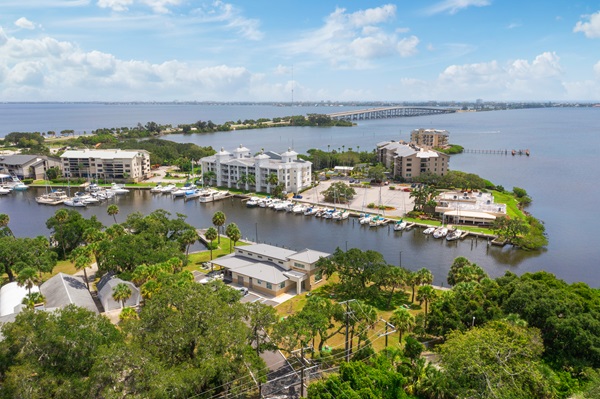Marine Research Resources in an Ideal Setting
Just minutes from campus at the meeting point of Crane Creek and the Indian River Lagoon, the Ralph S. Evinrude Marine Operations Center offers direct access to the water and supports a wide range of research activity. The facility houses small outboard-powered boats and medium-sized workboats for shallow-water studies, with ocean-going vessels chartered for extended offshore projects.
Also located here, Florida Tech’s Mertens Marine Center provides a hub for research and hands-on student training. On-site lab facilities allow samples to be processed quickly, often within minutes of returning from the field.
Image: The Mertens Marine Center (foreground) at the edge of the Atlantic Intracoastal Waterway. Photo credit: Pink Flamingo Photography, Jennifer Schumacher

 Give to Florida Tech
Give to Florida Tech 


